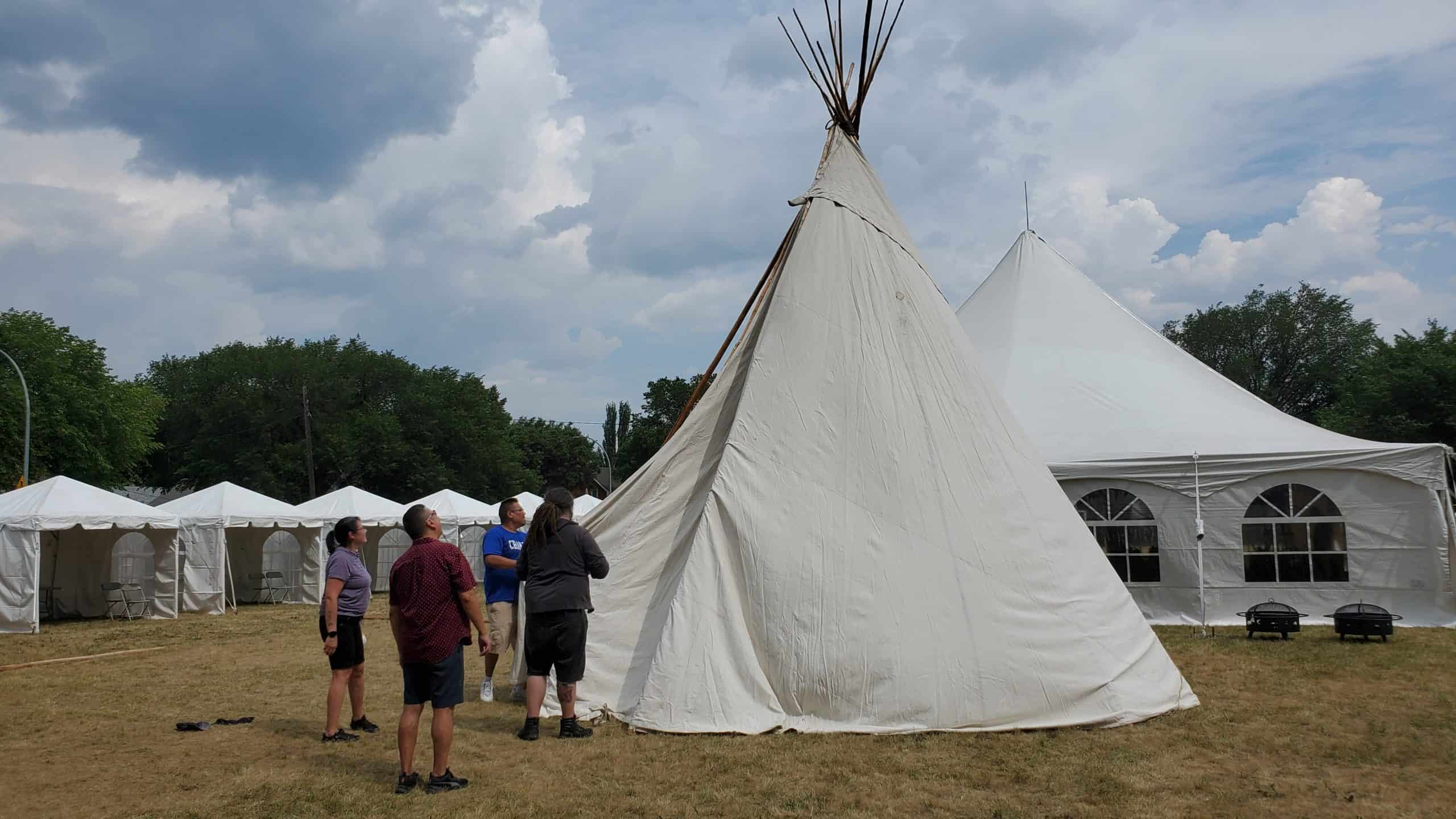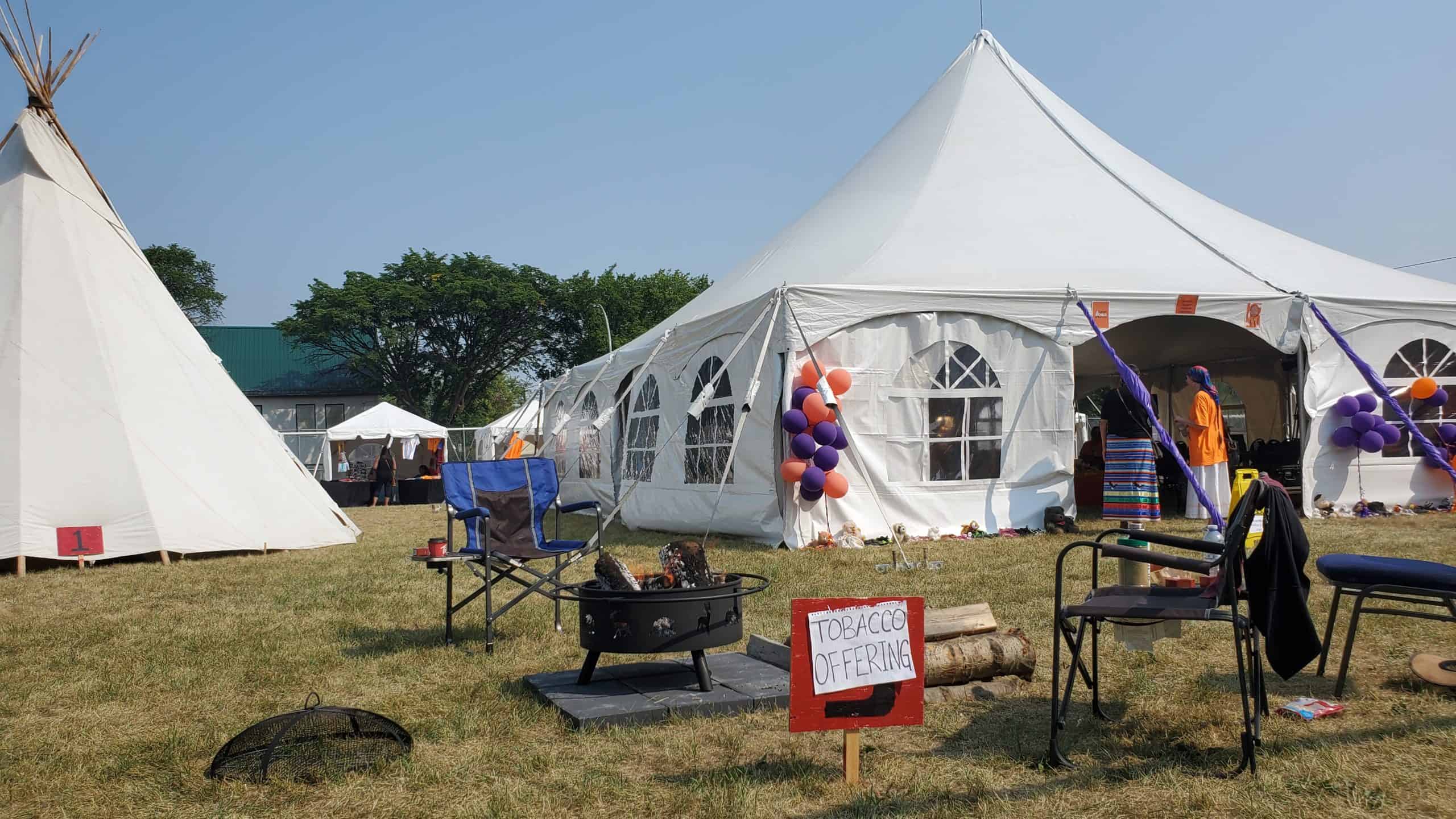Ceremony can help heal suffering
On Aug. 5 and 6, Bent Arrow hosted a conference, Healing the Past Through Ceremony, to hear the stories of residential school survivors. It was also a way to heal from the trauma caused by residential schools through ceremony, and educate non-Indigenous people about residential schools.
The conference opened with a pipe ceremony and a drum song. Speakers at the event included Dr. Leona Makokis, Elder Rose Wabasca, Dr. Francis Whiskeyjack, Elder Tom Snow, and more.
While the event was initially supposed to be held in 2020, Cheryl Whiskeyjack, executive director of Bent Arrow, says, “Everything happens for a reason… With all the things happening on the evening news, all the children they’re finding and repatriating back to their home communities, it just became very evident that the delay probably was a divine delay.”
Graves of over 1,000 Indigenous children have been uncovered at residential schools, and more will likely continue to be uncovered for some time. The event was situated to have the greatest healing impact possible.
Participants tuned in from across Canada through a Facebook livestream, and participants also got the chance to attend in person. Lloyd Yellowbird, who organized the event, says, “A lot of our teachings are done in ceremony and also by storytelling. This is why it’s a huge significance to have this set up where we can have the survivors talking about their stories, their experiences.”

The conference provided a space for residential school survivors to tell their story and educate others. | Vernon Boldick 
Pipe ceremonies, singing, and drumming were some of the ceremonies participants could take part in during the conference. | Vernon Boldick
Yellowbird chose the name of the conference because ceremony is the only way to heal the suffering. Saying sorry or paying reparations to Indigenous people won’t heal the trauma caused by residential schools, Yellowbird explains. “[Ceremony is] the only way we’re going to move forward… We heal ourselves and heal what we’ve been through together and do it through ceremony because this is what the creator gave us—these ceremonies, these medicines for a reason.”
Honourable Murray Sinclair, who sent in a video message for the event, says, “We need to look at how ceremony can help us deal with the issues that still plague us today. Not only us as people who have come to work together as survivors and those who were involved in the [Truth and Reconciliation] Commission, but also our children, our grandchildren, and our great grandchildren because it’s through ceremony that we’ll be able to help them with the issues that are bothering them.”
Another major goal of the conference was to educate participants and help non-Indigenous people become allies. “If you don’t know about certain people, you’re always going to listen to what TV tells you or what society tells you,” says Yellowbird. “But if you take the time to learn about anything, you’ll have a personal understanding of what it is you don’t understand.”
Through this education about residential schools and the trauma that Indigenous families suffered, it is no longer possible to ignorantly say, “Get over it.”
“You can’t get over it,” says Yellowbird, “because a lot of children didn’t return home. You send your children off to school and they don’t come back—you’re going to panic. You’ll be driving your vehicle all over, looking for your children. Our families couldn’t do that because [the] RCMP was involved, the church was involved, [the] government was involved.”
Whiskeyjack explains that healing is a journey, not a destination. “Anger is going to stop that healing from happening,” she says. Instead, Whiskeyjack explains that we need to talk about the harm that has happened in order to heal. “We call people into work—we don’t call people out. We’re not going to be that organization that talks about what people are doing wrong or what people could be doing better; we’re going to call people in to be a part of the good work that we need to do.”
“When you know better, you do better,” says Whiskeyjack. “So that’s what the goal is [with this event]: to learn, to listen, [and] to make sure that we do better going forward.”
If reading this article about residential schools was triggering and you need some support, call the Indian Residential School Survivors Society emergency crisis line at 1.866.925.4419.







